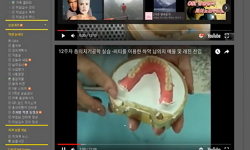The purpose of this study was to explore the perceptions of learners and directors of studies on the factors influencing academic performance of students in mixed secondary schools. For purpose to be accomplished the study utilized qualitative approa...
http://chineseinput.net/에서 pinyin(병음)방식으로 중국어를 변환할 수 있습니다.
변환된 중국어를 복사하여 사용하시면 됩니다.
- 中文 을 입력하시려면 zhongwen을 입력하시고 space를누르시면됩니다.
- 北京 을 입력하시려면 beijing을 입력하시고 space를 누르시면 됩니다.
The perceptions of learners and directors of studies on the factors influencing academic performance of students in mixed secondary schools of Bukedea district in Uganda
한글로보기https://www.riss.kr/link?id=T16810169
- 저자
-
발행사항
Wonju : Graduate School of Government and Business, Yonsei University, 2023
- 학위논문사항
-
발행연도
2023
-
작성언어
영어
-
주제어
학업성취도 ; 학습자 ; 교수법 ; 우간다 교육 ; academic performance ; director of studies ; ESSP ; Factors ; mixed secondary schools ; ordinary secondary school level ; UCE ; UNSCO ; USE
-
발행국(도시)
강원특별자치도
-
기타서명
우간다 부케데 지역 남녀 중등학교 학생의 학업성취도에 영향을 미치는 요인에 대한 학습자와 연구책임자의 인식
-
형태사항
viii, 87장 : 삽화 ; 26 cm
-
일반주기명
지도교수: Seohyun Lee
-
UCI식별코드
I804:11046-000000550072
- 소장기관
-
0
상세조회 -
0
다운로드
부가정보
다국어 초록 (Multilingual Abstract)
For purpose to be accomplished the study utilized qualitative approaches, writing down the perceptions and experiences of lower secondary school students through focus group discussions, and the views of the directors of studies through in-depth interviews. 51 participants in total were involved. 48students and 3 directors of studies. Among the students 24 were girls and the other 24 boys. The views of the participants were put coded in to themes. The factors presented were categorized in to student factors, teacher factors, and support system (school-support system and home support). Student factor: self-efficacy, attitude, grit, and discipline. Teacher factors; attitude, teaching methods and personality, for school support system: school environment, classroom environment, guidance and counselling, teaching -learning equipment, and compulsory subjects. For home support: parents’ motivation and family economic background.
To enhance academic performance, students should become more motivated, interested, and be positive. Teachers, in particular, should adopt new teaching methods, pedagogical approaches, and personality changes in order to influence learners’ behavior and relationships. The findings of the study demonstrated that a learner's lack of interest, bad attitude, behavior, poor morale, teacher's character and teaching methods, support system, parental motivation, and peer pressure were all factors that affected their academic performance.
The collected data from this study would help the secondary schools; administrators, staff, and the Ugandan Ministry of education and Sport in creating a better learning environment, re-evaluate the compulsory subjects at lower secondary level and come up with programs to help the teachers and students during the teaching -learning processing and within the school to improve performance in academics.
The purpose of this study was to explore the perceptions of learners and directors of studies on the factors influencing academic performance of students in mixed secondary schools.
For purpose to be accomplished the study utilized qualitative approaches, writing down the perceptions and experiences of lower secondary school students through focus group discussions, and the views of the directors of studies through in-depth interviews. 51 participants in total were involved. 48students and 3 directors of studies. Among the students 24 were girls and the other 24 boys. The views of the participants were put coded in to themes. The factors presented were categorized in to student factors, teacher factors, and support system (school-support system and home support). Student factor: self-efficacy, attitude, grit, and discipline. Teacher factors; attitude, teaching methods and personality, for school support system: school environment, classroom environment, guidance and counselling, teaching -learning equipment, and compulsory subjects. For home support: parents’ motivation and family economic background.
To enhance academic performance, students should become more motivated, interested, and be positive. Teachers, in particular, should adopt new teaching methods, pedagogical approaches, and personality changes in order to influence learners’ behavior and relationships. The findings of the study demonstrated that a learner's lack of interest, bad attitude, behavior, poor morale, teacher's character and teaching methods, support system, parental motivation, and peer pressure were all factors that affected their academic performance.
The collected data from this study would help the secondary schools; administrators, staff, and the Ugandan Ministry of education and Sport in creating a better learning environment, re-evaluate the compulsory subjects at lower secondary level and come up with programs to help the teachers and students during the teaching -learning processing and within the school to improve performance in academics.
목차 (Table of Contents)
- List of Tables. iv
- List of Figures. v
- Abbreviations. vi
- ABSTRACT. vii
- Chapter 1. Introduction: 1
- List of Tables. iv
- List of Figures. v
- Abbreviations. vi
- ABSTRACT. vii
- Chapter 1. Introduction: 1
- 1.2 Problem Statement. 5
- 1.3 General Objective. 6
- 1.4 Research questions: 7
- 1.5 Significancy of the Study: 8
- 1.6 Justification of the Study. 8
- 1.7 Scope of the Study: 9
- Chapter 2. Literature Review. 11
- Theories. 11
- Low academic performance Concept. 13
- Student factors and Academic Performance: 14
- Teacher-Factors. 20
- School Factors/ Support system and Academic Performance. 23
- Chapter 3. Methodology. 31
- 3.1 Introduction. 31
- 3.2 Research Design. 31
- 3.3 Qualitative Research Approaches. 32
- 3.5 Data Collection Methods. 33
- 3.6 Focus Group Discussion. 34
- 3.7 Recruitment Method. 35
- 3.8 Method of Analysis. 36
- 3.9 Study Area. 37
- Chapter 4.Findings 40
- 4.1 Learners perceptions and Experiences: 40
- Perceptions of the Directors of Studies; 55
- Chapter 5. Discussion: 66
- Conclusion: 71
- Recommendations and policy implication. 73
- Limitation of the Study: 74
- References 75
- Appendices. 78
- Appendix 1. 78
- Introduction Letter. 78
- Appendix 2 79
- 1. Student Focus Group Discussion Guide. 79
- Appendix 3. 83
- In-Depth interviews. 83
- To the Director of studies or deputy academics. 83
- Abstract in Korean………………………………………………...………86
분석정보
연관 공개강의(KOCW)
-

교수자의 발표문서를 이용하여 학습자들이 30분 영상으로 발표하는 미남교수의 학습자 참여형 교수법
신한대학교 신종우 -

학생들이 본 수업 하루 전에 카카오톡 음성 녹음으로 진행될 수업 내용을 미리 발표하는 학습자 중심의 교수법
신한대학교 신종우 -

교수자의 선행학습 영상을 학습한 다음 교수자의 영상발표자료를 토대로 학습자가 30분 스피치 영상으로 녹화하여 업로드 하는 미남교수의 거꾸로 교수법
신한대학교 신종우 -

미남교수의 선행학습 영상을 토대로 30분 녹화영상으로 스피치 하는 학습자 중심의 참여형 교수법
신한대학교 신종우 -

모든 학생들이 내일 수업진행 줄거리를 수업 전날 저녁에 카카오톡 음성메시지로 녹음하여 단톡방에 업로드하는 미남교수의 학습자 중심의 교수법
신한대학교 신종우







